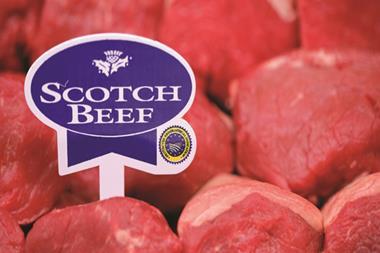Burgers are big business – and big news. Witness the flurry of foodie excitement that greeted the opening of two US chains in London at the start of the month – Shake Shack and Five Guys, which are seeking to stake their claim on the tastebuds of the nation’s burger geeks.
Fans of the gourmet patty – such as those who queued up at Shake Shack – may have been taken aback by the recent suggestion that the McDonald’s McDouble was “the cheapest, most bountiful, most nutritious food ever”. The claim was made by a reader of the Freakonomics blog, and author Stephen Dubner admitted he was hard pressed to disagree. The McDouble, by the way, is a type of double cheeseburger, contains 390 calories and is sold for 99 cents (it is not available in the UK).
The fuss over the McDouble, however, is as nothing next to the news that researchers are preparing to unveil the world’s first in vitro burger at an event in London on Monday. More than two years in the making, and costing an estimated €250,000, the burger has been developed by Professor Mark Post, head of the University of Maastricht’s Department of Physiology.
Post’s team grew muscle tissue from a small number of stem cells taken from healthy cows, then mixed it with lab-grown fat to produce the burger. Post told FoodNavigator.com the burger was a ‘proof of principle’ concept, which he hoped would lead to a method of creating sustainable food to feed an ever-growing population. “Hopefully this will create enough enthusiasm and financial support to upscale and economise the processes, so that we can improve and start to think about a real manufacturing process,” he said.
The possibilities are truly mind-blowing – not only could in vitro meat feed the world all the meat it could possibly want, it would remove the need to devote vast acres of land to livestock cultivation, and satisfy animal rights groups in the process. Indeed, PETA is offering a $1m reward to the first scientist to produce in vitro chicken meat and bring it to market (provided it’s achieved by 4 March, 2014 – though this deadline has already been pushed back once).
You want cheap, bountiful, nutritious food? Artificial meat would be the very definition of that – provided, of course, people could be convinced to swallow it. After the horsemeat scandal, consumers are more wary than ever about what goes into their food. Would UK shoppers be willing to eat something that has been cooked up in a test tube? It’s certainly a hard sell – though with enough refinement, the right price point, and upward pressure on ‘real’ meat prices, anything is possible. Just don’t expect to see people queuing up at an in vitro burger bar – except maybe for the novelty value.
And if in vitro burgers don’t take off, there’s always soylent – a beige liquid food replacement with a dauntingly long list of ingredients, dreamt up by some young entrepreneurs who have formed the ominous-sounding Soylent Corporation. Initial reports suggest soylent may fulfil some of its nutritional claims – though whether you’d want to live in a world in which soylent reigns supreme is another matter.


















1 Readers' comment